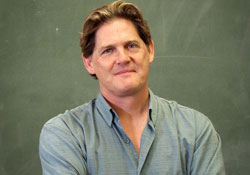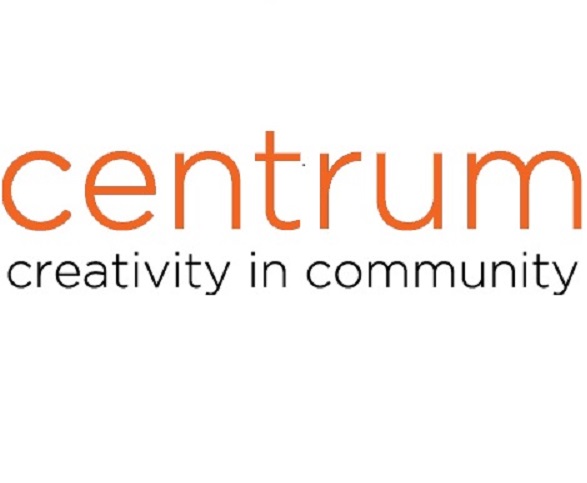Srivani Jade, Ravi Joseph Albright, and Wes Cecil
in conversation with Brangien Davis
Monday, March 9, 2020 | 5:30 p.m.
Joseph F. Wheeler Theater | Alchemy Bistro & Wine Bar
Curated to appeal to learners of all ages, Centrum’s new ‘Communiversity‘ arts and lectures series is designed to inspire thought-provoking conversations, throughout our community, highlighting a wide range of topics affecting our world. Each 90-minute event will feature selected experts in dialog with journalists and reporters from Crosscut and KCTS public media.
At our March 9 event, Hindustani vocalist, composer, and world musician, Srivani Jade, will join master tabla artist and accompanist, Ravi Joseph Albright, and historian Wes Cecil in discussion with Brangien Davis illuminating the history of Indian classical music. The evening will feature a complete raga performed by an ensemble of professional musicians.
Fifty ticket holders will enjoy the opportunity to extend the evening’s discussion over dinner with our guests at Alchemy Bistro & Wine Bar following the presentation.
Indian Ragas
Indian ragas were first envisioned by Hindus as a manifestation of the divine—a musical expression treated as god or goddess with its own intricate personality. The art form has two foundational elements, raga and tala. The raga, based on swara (notes including microtones), forms the fabric of a melodic structure, while the tala measures time. The raga gives an artist a palette to build the melody from sounds, while the tala provides them with a creative framework for rhythmic improvisation.
Srivani Jade
 Srivani Jade was introduced to music at the age of four by her father Bhavani Prasad Jade and uncle Raghavendra Tilwalli. She studied Khayal initially with Dr. Sharad Gadre in the Gwalior style, and in the Kirana style with Pandit Parameshwar Hegde since 2006. Srivani also enjoys singing an eclectic repertoire of light classical music, such as Thumri-dadra, Tappa and Bhajans.
Srivani Jade was introduced to music at the age of four by her father Bhavani Prasad Jade and uncle Raghavendra Tilwalli. She studied Khayal initially with Dr. Sharad Gadre in the Gwalior style, and in the Kirana style with Pandit Parameshwar Hegde since 2006. Srivani also enjoys singing an eclectic repertoire of light classical music, such as Thumri-dadra, Tappa and Bhajans.
Although she grew up performing on the stage and radio in India, she debuted as a Khayal singer in Ragamala’s Utsav festival and Devanandan Ubhayaker Yuva Sangeet Utsav for emerging artists. She has since continued to study, teach, and perform Hindustani Gayaki in both North America and India–Kalakendra (Portland), Ragamala (Seattle), Chhandayan (New York), Anindo Chatterjee Institute of Tabla, Suburban Music Circle (Mumbai) to name a few–and major music festivals such as the Sawai Gandharv Bhimsen Mahotsav.
She has five solo albums to her credit, and several grants, artist residencies and awards, including the Washington State Arts Commission Fellowship Award and an NEA grant for her musical composition work on the existential love poetry of Meera Bai. She has composed and recorded theme vocals for independent films such as Tapasya, Siddhanto and stage productions such as Indian Ink (Sound Theater Company). She is an auditioned artist with All India Radio, and Visiting Artist with the University of Washington School of Music’s Ethnomusicology program. She has also presented workshops on Hindustani/Bhakti music at UW Bothell, University of Puget Sound, University of British Columbia, among other.
Ravi Joseph Albright
 Ravi Joseph Albright is a professional tabla player and the Executive Director of Seattle Tabla Institute, a 501c3 non-profit organization, offering ongoing classes, workshops and musical events throughout the year in Seattle, WA. Ravi has also formerly served as Adjunct Professorship of Tabla at Lewis & Clark college in Portland, OR.
Ravi Joseph Albright is a professional tabla player and the Executive Director of Seattle Tabla Institute, a 501c3 non-profit organization, offering ongoing classes, workshops and musical events throughout the year in Seattle, WA. Ravi has also formerly served as Adjunct Professorship of Tabla at Lewis & Clark college in Portland, OR.
Born in Seattle, Ravi has been a student of North Indian classical tabla drumming in both India and the U.S. since his youth. He is one of only a few ganda-banda ( formally recognized ) disciples of Pandit Anindo Chatterjee of Kolkata, India.
In 2006 he was initiated into the Farukhabad Gharana, one of India’s traditional schools of tabla playing. His status was consecrated at a formal ceremony call a “puja”, in which the guru (revered instructor) ties a thread around the wrist of the shishya (student) to signify the bond between them and the commitment of the shishya to the art form. Ravi has dedicated his life to Tabla and will be a torch barer of this important school in the years to come. In his youth, he also studied with the talented Debopriyo Sarkar, a very advanced student of Pt. Chatterjee in San Rafael, CA. Ravi is now a professional tabla player based in the Seattle area. He performs regularly in the Seattle area for classical Hindustani, Western classical, and fusion ensembles.
Ravi has studied accompaniment from and performed with many accomplished musicians such as Ustad Amjad Ali Khan, Ut. Shahid Parvez Khan, Pt. Tejendra Majumdar, Pt. Nayan Ghosh, Pt. Sugato Nag, Pt. Kushal Das, G.S. Sachdev, Deepak Ram, and many others. He has performed in the Seattle area, and throughout the United States and Canada.
Wes Cecil
 Wes Cecil is Professor of English, Humanities at Peninsula College in Port Townsend. A student of language and literature. He has been reading, writing, and studying for most of his life.
Wes Cecil is Professor of English, Humanities at Peninsula College in Port Townsend. A student of language and literature. He has been reading, writing, and studying for most of his life.
He received a B.A. in English from Fresno State and then went on to receive an M.A. and Ph.D. in English at Indiana University. He is a published playwright, novelist, and essayist, whose online lectures on philosophy and the humanities have garnered international attention.
Brangien Davis
 Brangien Davis is Crosscut’s arts and culture editor.
Brangien Davis is Crosscut’s arts and culture editor.
Prior to Crosscut, she was the arts and culture editor at Seattle magazine, and has contributed cultural profiles, previews and essays to the Seattle Times, Lit Hub, City Arts, Arcade and Ampersand.
In addition, she has been a scholar-in-residence at Town Hall Seattle, an editorial manager at Amazon, founded the literary magazine Swivel, and taught creative writing and arts journalism.
